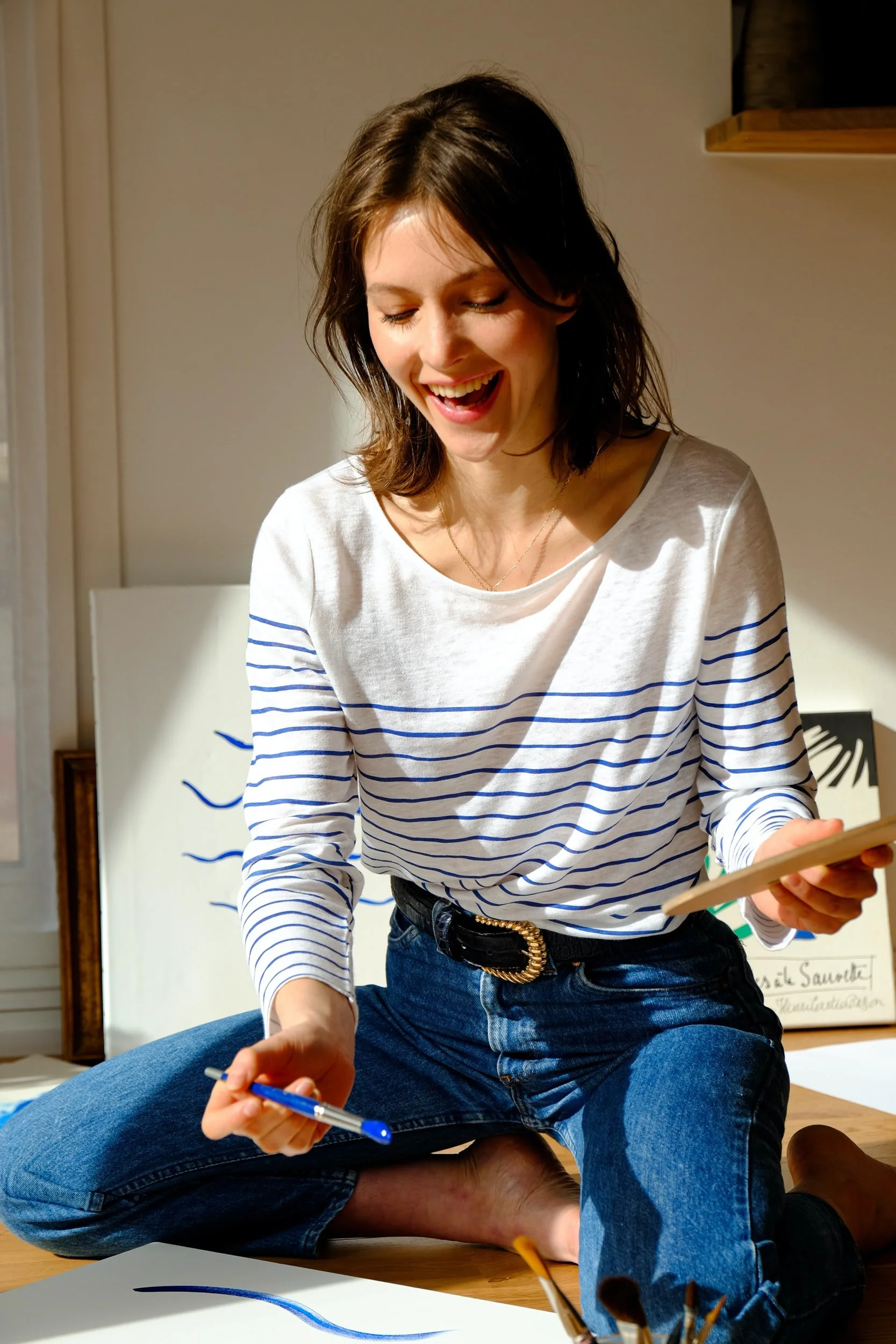“The study of trauma is really the study of how we survived. It’s actually the study of the adaptive strategies that we created for ourselves in the face of a home that was not welcoming…and home can be the body because trauma disrupts the capacity to feel at home in our bodies” - Linda Thai
I’ve always wondered why we do the things that we do. I wanted to understand people and their behavior because I wanted to connect to others in a more meaningful way.
More honestly, I wanted to understand myself and why I was always so uncomfortable in my own skin. I was in such agony with myself all the time.
Why didn’t I ever feel enough?
How did I keep ending up in a place where I had to chase people around for something that they needed help with?
Why did I keep smiling like an idiot even though I was so pissed off at something mean that somebody just said to me?
One way to understand our behaviors is through understanding how our experiences shaped us into who we are today. And deeper yet, how some experiences – trauma – can get locked into our bodies (known as samskaras in yoga philosophy).
In order to survive we need to develop adaptive strategies. This might look like being charming, very self-reliant or highly nurturing. It can also look like perfectionism, people pleasing, rebellion, self-isolation, or pushing people away. There are endless concoctions of adaptive strategies.
When they seem unappealing like lying or being overly critical, we deem them as problematic behaviors and might even get to a point where we berate ourselves for behaving that way.
But a better way to look at these behaviors is by seeing them, as Linda calls them “superpowers”.
It was an honor to have Somatic and Trauma Therapist, Linda Thai, on this episode to teach us about what trauma is, what adaptive strategies are, and what it takes to heal so that we can let go of the adaptive strategies that no longer serve us.
Listen in to discover:
What is trauma and how can you tell if you’ve experienced it?
What are these adaptive strategies that we develop for survival?
What does it take to heal and let go of the behaviors that no longer serve you?
About Linda Thai
Linda is an adjunct faculty member in the Social Work Department at the University of Alaska Fairbanks and specializes in trauma-informed care and compassion fatigue resilience skills; Mental health clinician at ND Systems, specializing in somatic therapies and trauma therapy.
She assists internationally renowned psychiatrist and trauma expert, Dr. Bessel van der Kolk, with his private small group psychotherapy workshops aimed at healing attachment trauma. In her work at Fairbanks Memorial Hospital, she is responsible for training clinicians in all departments, including psychology, nursing and medicine. She has a Master of Social Work with an emphasis on the neurobiology of attachment and trauma.
Linda has studied Sensorimotor Psychotherapy, Brainspotting, Havening, Internal Family Systems, and structural dissociation of the personality. Linda has worked in Fairbanks, AK with those recovering from addiction, trauma, and mental illness. She is passionate about yoga, meditation, and mindfulness and bringing those gifts to her community.
The Connection Between Trauma, Meditation, and Psychology
At [9:00], Linda explains what trauma is and how it disrupts the spiritual and physical being by creating an unwelcoming home inside our bodies. When dealing with trauma, we develop adaptive strategies to disassociate ourselves from difficult life events. Linda ultimately bridges the gap between yoga philosophy and the psychological world through three concepts:
taming your mind for mental clarity
self-awareness in finding your true self
aligning your adaptive strategies through transformational coaching.
Overcoming Loneliness
Linda shares trauma symptoms and adaptive strategies that we use to escape the anxiety that comes from distressing experiences and emotional neglect. In most cases, when coping with these experiences, we fall into loneliness and numb out the pain. She explains how you can turn this around, beat vulnerability, and be your true authentic self. To learn more about trauma symptoms and strategies, go to [15:50].
Create Spaciousness in Supportive Relationships and Communities
At [21:00], Linda inspires us to participate in supportive communities where we have space to turn up authentically and turn off our adaptive strategies. These communities will help amp up your self-awareness through self-recognition and your appreciation of the adaptive process. She stresses the connections with communities as the key to self-healing, mental clarity, and self-authenticity.
How to Practice Self-Compassion and Curiosity For Healing
Linda shares some tips in yoga and meditation in understanding adaptive strategies and making some adjustments for purposeful living. We need to lift the veil from who we think we are and notice our adaptive behaviors or samskaras (yoga philosophy), followed by curiosity and appreciation. Practicing self-compassion one you’ve noticed your samskaras is much more important than “fixing it”, which might not even be needed. Learn more abput self-compassion and how you can relate to your adaptive strategies at [25:30].
Reclaiming The Parts of Yourself That You Had To Give Away
When we define trauma as “ineffective action” it shows us that when we’re experiencing a traumatic situation, we are often unable to react or reach out. This ineffective action, while necessary for survival at times, causes us to give away a part of ourselves, such as the ability to love when we have been emotionally neglected. At [40:00], Linda talks about the path of reclaiming these parts of ourselves that we seemingly lost due to traumatic experiences.
Normalized Forms of Trauma
Linda explains that trauma can be defined in terms of resources - having too much or too little of something for too long. We need to realize that trauma, whether big or small, can wound our souls. We often normalize trauma but even something seemingly harmless goes on for an extended time or is repeated often enough, trauma can develop and shock our systems resulting in acute stress disorder or PTSD. Learn more about how length of time and repetition play a role in trauma at [44:00].
How Trauma Shapes Our Identities
When we decontextualize trauma and our adaptive strategies, we realize that we have all experienced some form of it, shaping our identities, family dynamics, and cultural stereotypes. Traumas are passed down to us by our parents and families but can also be inter-generational due to colonialism and imperialism. Through proper meditation practice, integrating mindfulness, and joining related communities, you can reconnect to your inner-self and eliminate the mental struggle. Learn more at [50:00].
Create Spaciousness to Understand Your Reactions
At [53:20], Linda emphasizes that we are often taught to give away our authenticity to maintain relationships such as accepting a relative’s inappropriate behavior. With Linda’s tools, we can learn to appreciate these experiences and discern whether they make us feel unsafe or uncomfortable but also to try to understand our emotions. We’re often very quick to expressing our disappointments but the capacity to sit in discomfort for some time will always lead us to discernment and appreciation.
One of the biggest lessons Linda has learned along the way...
The secret of life is that it’s a life-long thing. Give yourself a break and be gentle with yourself.
KEY NUGGETS:
[09:00] The Connection Between Trauma, Meditation, and Psychology
[15:50] Overcoming Loneliness
[21:00] Create Spaciousness in Supportive Relationships and Communities
[25:30] How to Practice Self-Compassion and Curiosity For Healing
[40:00 ] Reclaiming The Parts of Yourself That You Had To Give Away
[44:00] Normalized Forms of Trauma
[50:00] How Trauma Shapes Our Identities
[53:20] Create Spaciousness to Understand Your Reactions
RESOURCES:
The Body Keeps the Score: Mind, Brain and Body in the Transformation of Trauma by Dr. Bessel van der Kolk
Together: The Healing Power of Human Connection in a Sometimes Lonely World by Dr. Vivek Murthy
Connect with Linda:
Website: linda-thai.com
QUOTES:
“Trauma disrupts our capacity to feel at home inside our bodies.” - Linda Thai [09:16]
“The strategies that kept us alive, keep us from living.” - Linda Thai [13:33]
“Trauma survivors don’t have memories but we have symptoms.” - Linda Thai [16:05]
“Trauma is what happened that shouldn’t have happened and also what didn’t happen but should have happened.” - Linda Thai [16:50]
“Trauma [is] something that was too much [or too little] for too long without adequate resources.” - Linda Thai [45:15]
“We learn to give away our authenticity in order to maintain a relationship.” - Linda Thai [01:04:25]
“And every time I learn to give away my authenticity . . . I reinforce that samskara until it becomes my way of being in the world.” - Linda Thai [01:04:35]
“That capacity to sit in discomfort for long enough allows for discernment.” - Linda Thai [01:06:27]
Partners:
This episode is brought to you by The Offering Tree. The Offering Tree is an easy all-in-one platform to run your business so that you don't have spend extra time trying to figure out all the tech stuff. Offering Tree let’s you build you website, scheduling calendar, class offerings, online store, email marketing, membership site and online courses all in one place!
They’re a heart centered company that truly believes in the power of community and genuinely wants to support wellness entrepreneurs to do what they’re meant to do.
The best part is that because you’re a member of the Curious Monki community, you get an awesome discount! Find out more here.























